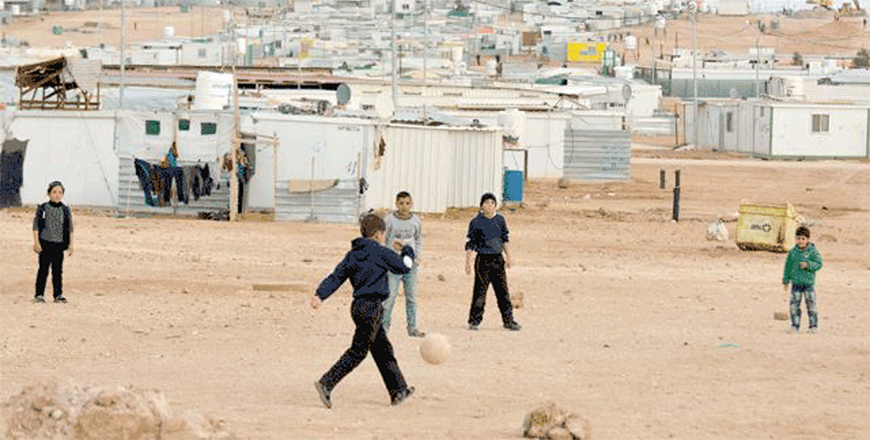AMMAN — Additional aid to Jordan is vital, according to economists, after a UNICEF report highlighted that more than one million children in Jordan are in need of assistance.
The recent UNICEF Syria Crisis Humanitarian Situation Report said out of 2.4 million people who are in need — a figure which includes Syrian refugees and host communities — 1.6 million are children.
The report noted that in 2022 UNICEF appealed for $192.1 million to sustain the provision of services for vulnerable children and their families in Jordan.
By the end of 2022, UNICEF Jordan had secured only $ 71.1 million in contributions.
With a carry forward sum of $54.5 million, UNICEF Jordan’s end year funding gap was $66.5 million or 35 per cent, according to the report.
In 2022, the Syria crisis continued into its 11th consecutive year. Jordan offers protection and assistance to more than 2.7 million refugees, including 1.3 million Syrians, of whom 660,892 are registered with UNHCR, according to the report.
Currently, 134,582 Syrian refugees live in camps including 82,735 refugees in Zaatari camp and 44,805 in Azraq camp, the two largest Syrian refugee camps in Jordan, according to the report.
Most refugees have been welcomed into host communities, most frequently residing in the northern governorates and Amman, the report said. The year 2022 was marked by a range of humanitarian issues and challenges that will likely continue in 2023, according to the report.
“Jordan needs continued support to be able to help everyone in need as the Kingdom has not received the funding it requested as part of the Jordan Response Plan,” economist Hosam Ayesh told The Jordan Times on Monday.
“Jordan received only 30 per cent of the funding for the plan, and according to the government this aid is less than the cost it bears for providing service to the refugees,” Ayesh said.
The cost of children's supplies and their various health, educational, mental and other requirements are high in relation to family income rates, Ayesh added.
Economist Wajdi Makhamreh said the international community must prioritise support to Jordan.
“When Jordan hosted the Syrian refugees, they did not expect this crisis to last for a long time, but things escalated, and a large part of the refugees do not want to return to their country, fearing for their lives,” he added.
“There was a commitment on the issue of refugees, but with the lack of a political solution, and the presence of global crises such as the COVID pandemic and the Russian-Ukrainian crisis have contributed to making the issue secondary for the countries that were supporting Jordan,” he said.
This added great pressure on the Jordanian budget and the Jordanian government in terms of education, infrastructure and healthcare services, Makhamreh said.
According to the UNICEF report, the agency provides life-saving health and nutrition services to children under five and women of childbearing age in Azraq and Zaatari refugee camps.
UNICEF in 2022 provided 9,732 women, girls and boys — 52 per cent female — with specialised child protection and gender-based violence response services in Syrian refugee camps and host communities, the report said.
Community-based child protection and psychosocial support activities for children and parenting programme for caregivers reached 124,957 individuals, 67 per cent female, according to a report.
